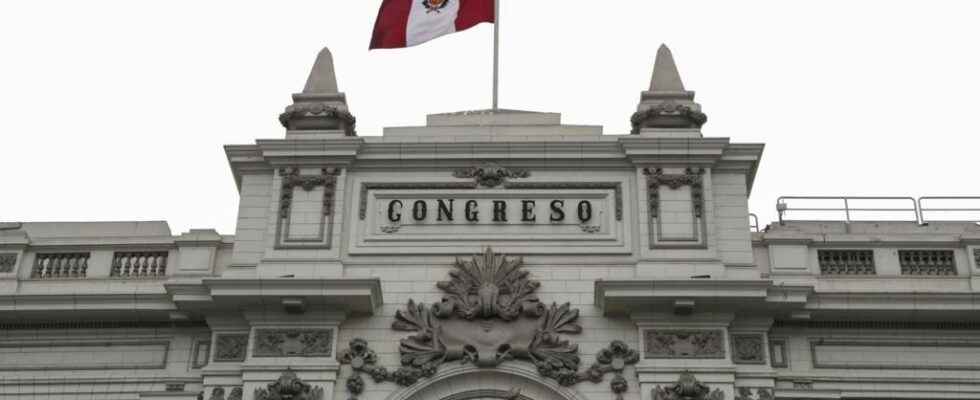Peru’s Congress on Tuesday night approved a bill to hold early general elections in April 2024, two years earlier than expected. Although the demonstrations by supporters of former President Pedro Castillo have lost some intensity, the pressure from the streets has pushed back the deputies who opposed them last week.
With our correspondent in Quito, Eric Samson
After hours of debate broadcast live on Tuesday, the President of Congress José Williams finally pronounced a sentence awaited for more than a week by the demonstrators favorable to the ousted president: “ 30 against, 1 abstention. As a result, the constitutional reform law has just been approved, which modifies the term of office of the President of the Republic, Andean deputies and parliamentarians. »
Peru’s Congress has voted to advance general elections from 2026 to April 2024, in an attempt to stem the crisis and end protests sparked by the impeachment of ex-president Pedro Castillo. For it to enter into force, the reform must however still be validated by a new vote at second reading in early 2023.
Dina Boluarte in power until 2024
Will that be enough to calm the streets as the December 7 dismissal of President Pedro Castillo sparked violent protests? President Dina Boluarte would therefore remain in power for another twenty months, much longer than the demonstrators are visibly ready to accept.
Hernando Guerra Garcia, chairman of the Constitutional and Bylaws Commission of Congress, defends the new calendar on behalf of the Fujimorist Popular Force party: “ We accepted the date proposed by the government because we must offer a way out of the crisis and a little light to the population. ” The crisis is far from over in Peru.
►Read also: Friction between Peru and its neighbors on the left who support Pedro Castillo
Pedro Castillo’s wife and two minor children have been at the Mexican Embassy in Lima since Tuesday morning and obtained ” diplomatic asylum “, as previously confirmed by the Mexican Minister of Foreign Affairs, Marcelo Ebrard.
The Peruvian government, which saw Mexican President Andrés Manuel Lopez Obrador’s support for Pedro Castillo as a “ interference “, said Tuesday persona non grata the Mexican ambassador in Lima, Pablo Monroy, and gave him “ 72 hours to leave » the Andean country.
Mexico reacted immediately with an official press release recalling its ambassador “ in order to preserve his safety and physical integrity “, while ensuring that its diplomatic representation would continue to operate normally, and saying” firmly believe in dialogue “. Marcelo Ebrard then estimated on Twitter that the Peruvian decision was “ unfounded and reprehensible “. ” The conduct of our ambassador has been in accordance with the law and the principle of non-intervention. Mexico will not change its position “, he added.
At the end of 2021, the Mexican president had supported his Peruvian counterpart by criticizing Congress’s attempts to remove him from office. Andrés Manuel Lopez Obrador, together with other left-wing leaders in Latin America (Argentina, Bolivia and Colombia), reiterated his support for Pedro Castillo on December 7 after the failed coup.
